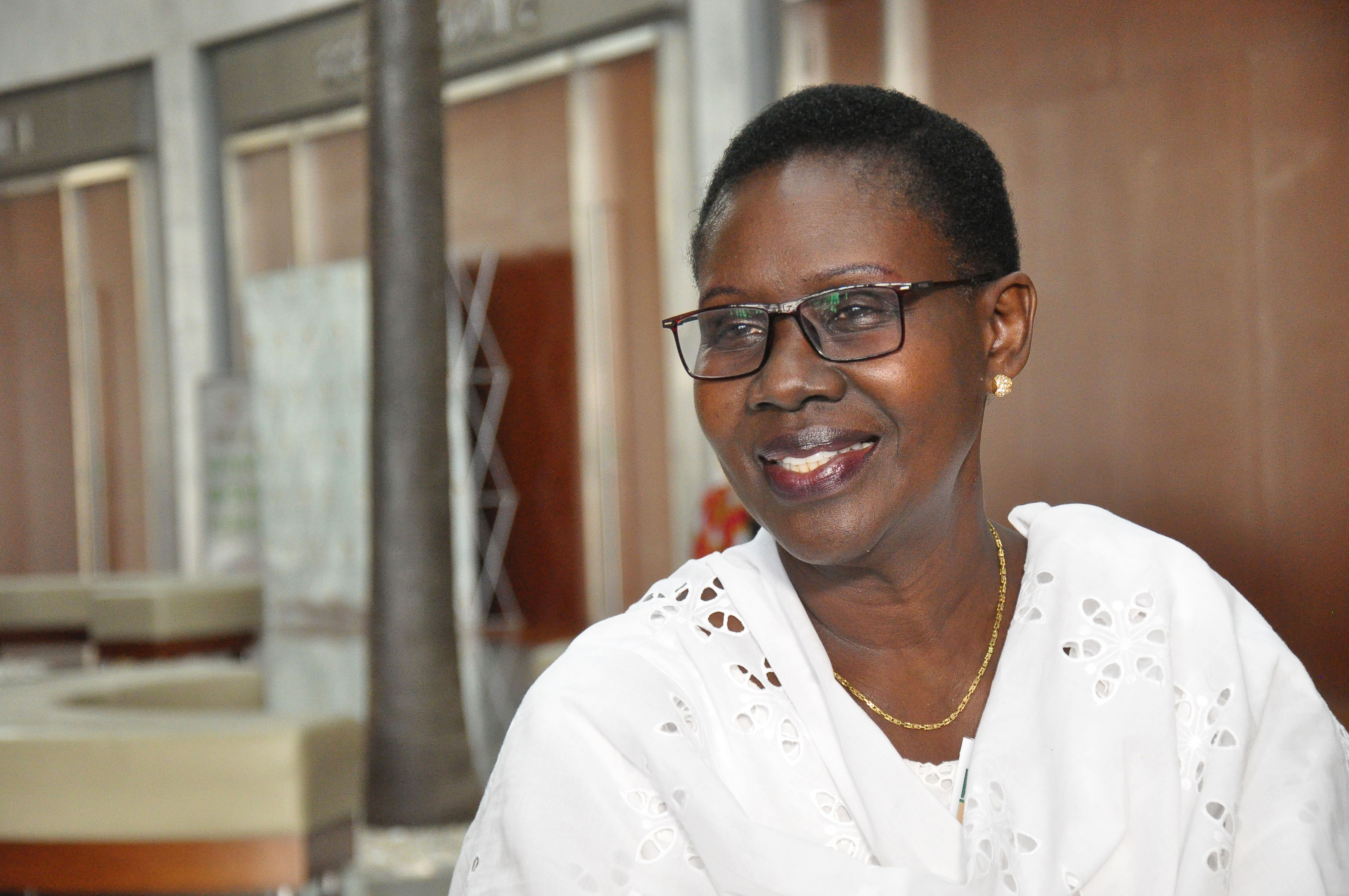Time is now for the Africa we want
Date:

Diana Ofwona has picked up a wealth of information from diverse fields including government, private sector and the academia all of which play an instrumental role in her current position as Regional Director for UN Women Central and Western Africa where she leads a dedicated team of colleagues committed to empowering women and girls on the continent.
Narrating the early years of her career with UNIFEM, Diana recounts how the support of her supervisors laid the foundation for her to constantly seek social transformation for the most vulnerable. The most important element of this support lay deeply in the mentorship and encouragement from her supervisors which stems her passion to give back to society in ways that will empower and enrich the lives of the younger generation.
Diana constantly aspires to commit to a cause that is greater than her. She aims to significantly transform the lives of people, especially of women and girls, economically, socially and politically.This is evident in how she leads her team and is keen to spread this effect across Africa.
During the African women and leadership network meeting, we had an opportunity to speak with Diana Ofwona on key issues on women and leadership.
African women leaders across all sectors recently met in Addis Ababa at the Second Forum of AWLN. Why is the focus on women Leadership?
We know it is at the leadership level that decisions are made but for a long time, women have been locked out of leadership both consciously and unconsciously. When women are not involved in leadership roles at all levels of society, we will not achieve our development aspirations of transforming society for better. It is therefore important for women’s voice to be heard.
Most constitutions in Africa enshrine the principles of equity and equality but these principles must be localized and implemented. This meeting is not focusing only on having women occupy political positions, it is also the opportunity to highlight on the various spaces and areas where women can lead. These may include social leadership, leadership in the academia as well as in entrepreneurship. The network meeting therefore sought to assess the roles of women leaders in the transformation and growth of the African continent. Therefore, we are putting our heads together to reflect on these issues and to discuss tangible actions on how to concretely aim at some of the quick wins, and design high impact programmes that we can easily execute.
What role can the African Women Leaders Network play in enabling women’s leadership at local and regional levels?
Women and girls have a right to leadership. It is not justifiable for us to beg for what is rightfully ours. We can either get things done for ourselves and or take advantage of available support. We need to raise the level of consciousness, the realisation that one has what it takes to make a positive impact in society and their community. This is indeed the aim of the African Women Leaders Network.
For women seeking political leadership, we must make conscious efforts to do away with the structural barriers that limit women’s equal participation. These includes addressing challenges such as electoral violence, flawed political party nominations and campaign financing to level the unequal playing field.
We must also raise the level of women’s voices in areas of conflict and peace building. Women are the most affected when it comes to conflict and post conflict situations and yet they are not involved in solution seeking.
Women are key actors in conflict settings and their roles are often ignored. What do you think should be done to better involve women in post conflict interventions including efforts to achieve sustainable peace in the region?
Women and children are the most affected of conflict and women do play an important role in conflict resolution. In these extreme times, the role of women in holding the fabric of society is evident. There are stories of how mothers have supported their families in exile, engaging in activities to ensure their children go to school and are fed. During post conflict arrangements, women are readily available to support efforts aimed at fostering social cohesion. We have witnessed situations where perpetrators of violence and the victims have lived together in harmony brought together by the peacebuilding
When women are given space to engage in peace-building activities either as active agents or victims of change we will be able to achieve sustainable peace in the region.
What are the challenges and opportunities that exist for women in pursuit of leadership positions?
Several opportunities exist; however, the query is how women have access to them. The stereotypes which relegate women to non-leadership positions, for instance, the barriers to education. Sometimes there is a leadership position, but when one considers the requirements, in contrast to the historical injustice women have been exposed to, some fail to attain such positions because they do not meet the minimum requirements.
It is advisable for women to step forward and pursue their aspirations; including, seeking knowledge to enhance their leadership qualities. By not doing so, they allow the gap to widen. With a mind-set focused on each woman’s responsibility, and capacity to make a difference, we can broaden this consciousness, to ensure that every woman can play a role otherwise we will all be akin to birds that have beautiful wings and we just don’t fly. I aspire to have a legacy that through my leadership position, I can champion the transformation of my constituency either economically, socially or politically. I would be pleased to see thousands of women and girls reach the top, that’s when I will rest in peace.